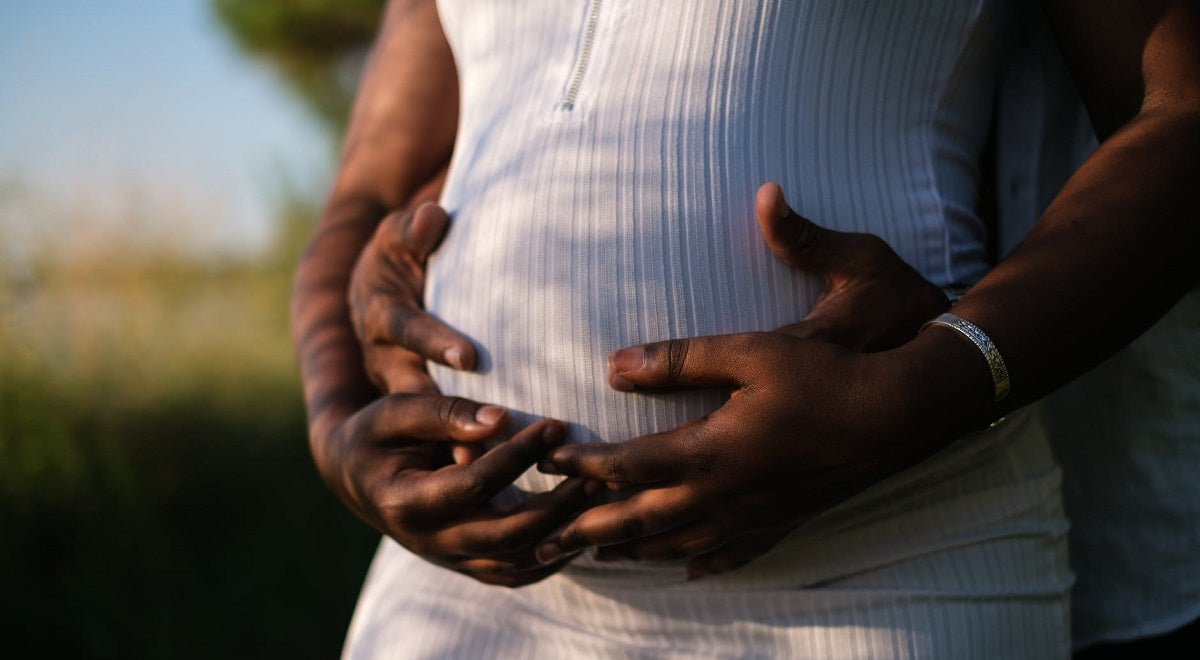We are all aware of our different blood-groups. The “positive” or “negative” of blood-types refer to the Rh factor of protein on your red blood cells. If you have this protein, you are Rh-positive. If you do not, you are Rh-negative.
Although mum and baby may have different blood types, the Rh factor is what is considered the most important part, and here is why.
The risk
If you are Rh-positive, you are at no risk as your body will not fight against Rh-positive or Rh-negative blood. However, if you are Rh-negative, and your baby’s father is Rh-positive, you may be at risk. If your baby’s blood turns out to be Rh-positive like their father, their blood may be harmful to you.
If this is your first pregnancy, or your first pregnancy where the father is Rh-positive, there is a relatively low risk, as your baby will not necessarily transfer blood to you.

Blood from your baby can transfer to you, especially during the birth process, via the placenta. If this occurs, your body will see this blood as a foreign invader, and attack this blood. You may get sick, and your body will create anti-bodies to detect Rh-positive blood in the future.
During your first pregnancy
When you expect your first child, it is important to screen for Rh incompatibility, as this will affect pregnancies going forward.
If you are Rh-negative, and the father of your baby is Rh-positive, your baby’s blood type will be determined right after the birth by taking a sample from the umbilical cord.
If your baby is Rh-positive, you will receive an injection of Rh immune globulin. This medicine will prevent your body from making Rh-positive antibodies.
Why is it important to prevent the Rh-antibodies?
During your pregnancy, your baby does not supply you with blood, however, you supply your baby with nutrients through your own blood. If you develop antibodies during your first pregnancy, your blood will affect your next pregnancy.
These antibodies can attack your next baby's red blood cells. This can lead to hemolytic anemia in
the baby. This means that your baby’s red blood cells are destroyed faster than they can regenerate. Red blood cells carry nutrients and oxygen to your baby’s organs. Without them, you may suffer a miscarriage or stillbirth.
Ways of developing Rh-antibodies

Your first-time giving birth is not the only way you may be exposed to Rh-positive blood. You may be exposed during;
- An ectopic pregnancy, or miscarriage
- A mismatched blood transfusion or blood and marrow stem cell transplant
- An injection or puncture with a needle or other object containing Rh-positive blood
If you feel uneasy, ask for a blood test to determine if you have any Rh-antibodies. Some countries will automatically administer the Rh immune globulin injection to mothers who are Rh-negative, as a precaution. However, it is expensive, so many doctors in South Africa will test as a precaution, first.
The other option is to also test your baby’s blood-type before they are born. Your doctor can test by inserting a thin tube by way of the vagina, to reach the placenta. They can take a small sample of the tissue to test. However, by doing this, it exposes you to the risk of coming into contact with Rh-positive blood as well.
What to do

This is a risk as many other, and the best option is to handle it with patience and care, as you would any other risk factor. You will not know, until you do. The best way to arm yourself is with knowledge. Start by finding out if you are indeed Rh-negative, and if daddy-to-be is Rh-positive. Then speak to your doctor about the risks and what their treatment plan is, going forward.
We can deliver your maternity and baby products, medication, supplements, cosmetics, fragrances and other Mopani online shopping, nationwide. Contact us for info: mopani.co.za | crossing@mopani.co.za | Tel: 0137555500 | WhatsApp: 0661921703


